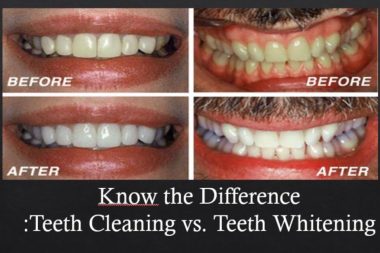While erectile dysfunction (ED) is widely discussed as a man’s problem, it can actually have a serious impact on women’s sex lives as well. ED can be an embarrassing and isolating issue for men to experience, but there’s also evidence that it may have long term effects on their significant others. In this article, we’ll explore how ED affects a woman’s relationship and sex life and what steps she can take to help her partner cope with the condition. We’ll also look at some of the common misperceptions about ED and the importance of discussing this sensitive topic openly so that couples can remain connected and work through their issues together.
What is erectile dysfunction?
Erectile dysfunction is a man’s inability to get or keep an erection. It can be caused by physical or psychological problems.
Physical causes include:
-heart disease
-high blood pressure
-diabetes
-obesity
-multiple sclerosis
-Parkinson’s disease
-hormonal problems
-injury to the penis, prostate, bladder, pelvis, or spinal cord
Psychological causes include:
-anxiety
-depression
-stress
-relationship problems
While erectile dysfunction can be distressing for both men and their partners, it is important to remember that it is a common problem. It affects men of all ages and from all walks of life. There are many treatments available, so there is no need to suffer in silence.

How does erectile dysfunction affect a woman’s sexual health?
Erectile dysfunction (ED) is a sexual health condition that affects a man’s ability to get or maintain an erection. While this can obviously be a problem for the man himself, it can also have a negative impact on his partner’s sexual health.
For women, ED can mean a loss of sexual pleasure and satisfaction. It can also lead to anxiety and relationship problems. If you’re in a relationship with a man who has ED, it’s important to talk about the problem so you can find ways to work around it.
There are many different treatments for ED, so there’s no need to give up on your sex life. With the right treatment, most men with ED are able to have satisfying sex lives. If you think your partner might have ED, don’t hesitate to talk to his doctor about it. Together, you can find a solution that works for both of you.
What are the treatment options for erectile dysfunction?
Erectile dysfunction (ED) is a common condition that affects men of all ages. While it can be embarrassing to talk about, it’s important to remember that you’re not alone and there are treatment options available.
The first step in treating ED is to make lifestyle changes, such as quitting smoking, losing weight, and exercising regularly. If these measures don’t improve your symptoms, your doctor may prescribe medication. Common ED medications include:
– phosphodiesterase type 5 inhibitors (such as sildenafil, tadalafil, and vardenafil)
– alprostadil (a synthetic hormone that increases blood flow to the penis)
– penile injections (of medication directly into the penis)
– vacuum devices that pull blood into the penis and cause an erection
Surgery is rarely needed to treat ED. If other treatments haven’t worked or aren’t suitable for you, your doctor may recommend penile implants. These are usually only considered when other treatments have failed.
How does erectile dysfunction affect a woman’s sexual health?
When a man experiences erectile dysfunction (ED), it can have an effect on his partner’s sexual health as well. While a man with ED may still be able to enjoy sex, his partner may find it more difficult to become aroused or reach orgasm. This can lead to feelings of frustration and anxiety that can further impact sexual satisfaction. In addition, the lack of physical intimacy can put a strain on the relationship.
It is important to remember that ED is not just a man’s problem. It can be caused by a variety of factors, including stress, anxiety, and underlying medical conditions. If you are having trouble getting aroused or reaching orgasm, talk to your partner about what you’re experiencing. Together, you can explore possible solutions and find ways to enjoy sexual intimacy despite ED.
What are the causes of erectile dysfunction in women?
Erectile dysfunction (ED) is a medical condition that affects a woman’s ability to have or maintain an erection of the clitoris during sexual intercourse. It can be caused by physical or psychological factors, or a combination of both.
Physical causes of ED in women include:
– Hormonal problems: A change in hormone levels can interfere with a woman’s sexual response and lead to ED. This can be due to menopause, pregnancy, childbirth, or breastfeeding.
– Pelvic surgery: Surgery on the pelvis, such as a hysterectomy, can damage nerves and blood vessels near the clitoris, leading to ED.
– Vascular disease: Conditions that affect blood flow, such as atherosclerosis and hypertension, can cause ED.
Psychological causes of ED in women include:
– Anxiety: Performance anxiety or stress about other aspects of life can lead to sexual dysfunction.
– Depression: Depression can interfere with sexual desire and arousal, causing ED.
– Relationship problems: difficulties with a partner can cause sexual problems and lead to ED.
How can erectile dysfunction be treated in women?
There are many potential causes of erectile dysfunction in women, and the most effective treatment will vary depending on the underlying cause. However, there are some general treatments that can be effective for many women.
Some common causes of erectile dysfunction include low levels of testosterone, problems with blood flow to the genitals, and psychological issues such as anxiety or depression. Treatments for these issues may include hormone replacement therapy, medication to improve blood flow, and counseling to address psychological concerns.
In some cases, surgery may be necessary to treat an underlying condition that is causing erectile dysfunction. For example, surgery may be needed to repair damage to the blood vessels or nerves that supply the genitals. In other cases, surgery may be used to remove blockages in the reproductive tract that are preventing normal sexual function.
Whatever the cause of erectile dysfunction, it can be a frustrating and embarrassing problem for women. However, there are many treatment options available that can help improve sexual function.
The physical effects of erectile dysfunction on a woman
Erectile dysfunction (ED) is not just a man’s problem. It can also have a profound impact on a woman’s life and wellbeing.
While it is most commonly associated with men, ED can also affect women of all ages. In fact, it is estimated that one in ten women will experience some form of sexual dysfunction in their lifetime.
Though the causes of ED vary, the condition can often be linked to physical factors such as hormonal imbalances, certain medications, or surgery. In some cases, psychological factors such as anxiety or depression may also play a role.
Regardless of the cause, ED can take a toll on a woman’s sexual health and wellbeing. The condition can lead to reduced libido, difficulty becoming aroused, and an inability to reach orgasm. In severe cases, it may even prevent sexual intercourse altogether.
ED can also cause feelings of shame, low self-esteem, and anxiety. The condition can put strain on relationships and make intimacy difficult. If you’re struggling with ED, know that you’re not alone—and there are treatments available that can help you regain your sexual health and confidence.
The psychological effects of erectile dysfunction on a woman
It’s no secret that erectile dysfunction (ED) can take a toll on a man’s self-esteem. But what is often overlooked is the impact that ED can have on a man’s partner. For women, dealing with a partner’s ED can be just as emotionally devastating as it is for the man himself.
Just as with any other major health problem, ED can have a significant psychological effect on both the man and his partner. Here are some of the ways that ED can impact a woman psychologically:
Feelings of inadequacy: It’s common for women to feel like they are somehow responsible for their partner’s ED. They may blame themselves for not being “sexy enough” or question their own attractiveness. This can lead to feelings of low self-worth and insecurity.
Anger and resentment: Dealing with ED can be frustrating, particularly if it means having to forego sexual intimacy. This can lead to feelings of anger and resentment towards both the partner and the condition itself.
Anxiety and stress: Not being able to rely on one’s body to perform sexually can be stressful. This anxiety can manifest itself in different ways, such asperformance anxiety or worries about the future of the relationship.
Guilt: Women may feel guilty about their own sexual desires or feel like they are “leading their partner on” if they still want to have sex despite his erectile dysfunction. This guilt can further fuel feelings of inadequacy and insecurity.
Depression: If the ED persists and is not managed effectively, it can lead to depression in both partners. This can be due to a combination of the physical and psychological effects of ED.
Ultimately, dealing with a partner’s erectile dysfunction can be an emotionally draining experience for women. For this reason, it’s important to create an open and honest dialogue about ED between partners. Additionally, seeking professional help and support is highly recommended.
Treatments for erectile dysfunction
Male sexual dysfunction can have a profound impact on a couple’s sex life. It can also be a source of great frustration for a man. While there are treatments available for erectile dysfunction, it is important to understand how the condition affects a woman as well.
Erectile dysfunction (ED) is the inability to get or keep an erection firm enough for sexual intercourse. It can happen at any age, but is more common in men over 40. ED affects as many as 30 million American men.
While most men with ED will still be able to get an erection sometimes, they may not be able to sustain one long enough for sex. This can be frustrating for both partners. In some cases, it may lead to performance anxiety orRelationship problems .
There are several potential causes of ED, including:
– Anxiety or depression
– High blood pressure
– Diabetes
– Heart disease or other medical conditions
– Side effects from certain medications
– Injury to the nerves or arteries that control erections
Fortunately, there are treatments available that can help improve or resolve ED. These include:
– Medications such as Viagra, Cialis, and Levitra
– Hormone therapy
– Surgery
– Vacuum pumps
– Counselling
Speak with your doctor about which treatment option may be right for you.

Living with erectile dysfunction
It’s not just men who suffer from erectile dysfunction. This common condition can also have a significant impact on women’s lives.
The female partner of a man with erectile dysfunction may feel disappointed, frustrated, and even resentful. She may blame herself for her partner’s problem and feel less attractive or desirable.
Sex can be an important part of a relationship, and when one partner is unable to perform, it can put a strain on the relationship. The couple may start to avoid sexual activity altogether.
There are treatments available for erectile dysfunction, so it’s important to talk to your doctor about this problem. With proper treatment, many couples are able to enjoy a healthy and satisfying sex life.
Conclusion
Erectile dysfunction can be a difficult and embarrassing experience for men, but it can also have serious effects on their partners as well. Women whose male partners suffer from erectile dysfunction may feel frustrated or upset, and this could affect the quality of their intimate relationships. It’s important to remember that ED is a common issue affecting millions of men around the world, and seeking out professional help is often necessary in order to deal with it effectively. In doing so, couples will be able to start enjoying a healthy sexual relationship once again.










Leave a Reply